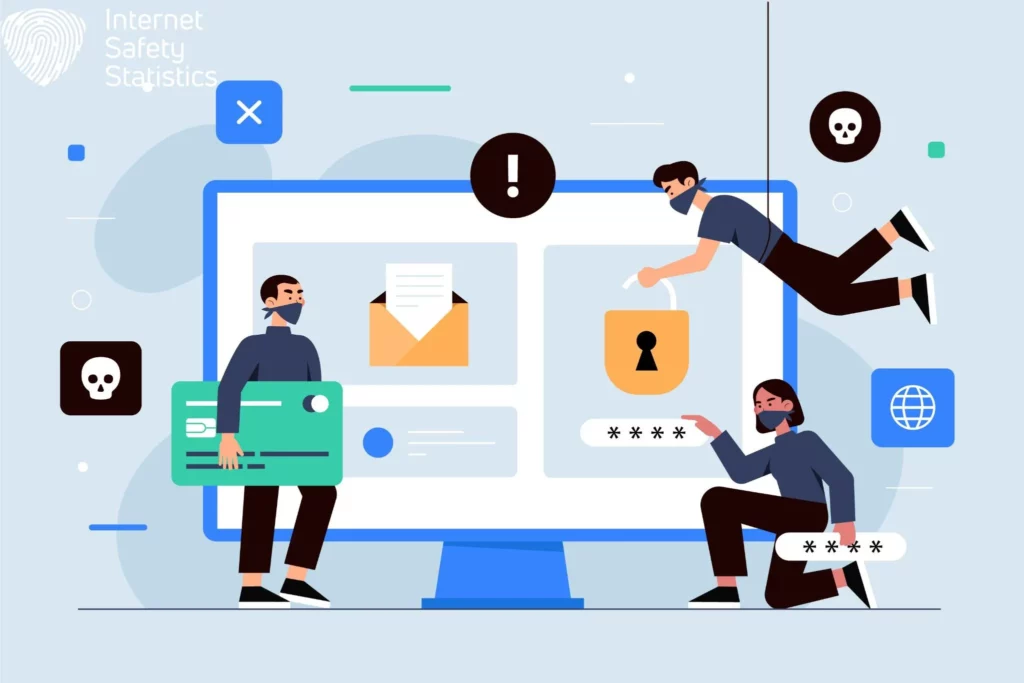
Imagine waking up to discover your life laid bare online, intimate details and private information splashed across the internet for all to see—that’s the chilling reality for victims of a privacy act violation. This intrusive breach not only shatters personal privacy but also raises questions about the security and protection of sensitive data in the digital age.
Definition of Privacy Act Violation
A Privacy Act Violation occurs when an individual’s private information, typically protected by legal frameworks, is accessed, disclosed, or mishandled without their consent. This breach encompasses a range of activities, from unauthorised data access to inadequate protection measures, undermining the fundamental right to privacy.
Privacy protection is of paramount importance as it safeguards personal information, preventing unwarranted intrusions and potential misuse. The Privacy Act, a legislative cornerstone in many jurisdictions, outlines specific regulations governing the collection, storage, and dissemination of personal data. It serves as a shield, defining the rights of individuals and the obligations of organisations that handle sensitive information.
The significance of the Privacy Act lies in its role as a legal safeguard, establishing boundaries for responsible data practices and ensuring that individuals retain control over their personal information in an age where digital interactions play a pivotal role in daily life.
Types of Privacy Act Violations
The cloak of secrecy around our personal information can be ripped away in numerous ways, each constituting a potential privacy act violation.
Unauthorised Access and Disclosure
- Unauthorised access occurs when an individual gains entry to sensitive records or data without proper authorisation.
- Unauthorised disclosure involves sharing personally identifiable information (PII) with unauthorised parties.
- Violations can occur within government agencies, businesses, or any organisation handling personal data.
Failure to Notify Individuals
- Privacy laws often require organisations to notify individuals about data collection, usage, and disclosure practices.
- A violation occurs when an organisation fails to provide adequate notice to affected individuals.
- Proper notification ensures transparency and empowers individuals to exercise their privacy rights.
Inadequate Security Measures
- Organisations must implement robust security measures to protect personal data.
- Violations occur when inadequate safeguards lead to data breaches, unauthorised access, or cyberattacks.
- Examples include weak encryption, lack of access controls, or failure to patch vulnerabilities promptly.
Data Collection Beyond Scope
- Privacy laws define the permissible scope of data collection.
- Violations occur when organisations collect more data than necessary for a specific purpose.
- Properly defining data collection limits ensures privacy and prevents overreach.
Remember that privacy violations can have legal, financial, and reputational consequences. Organisations must prioritise privacy protection to maintain trust and comply with relevant regulations.
Real-Life Examples of Privacy Act Violations
Real-life examples of Privacy Act violations underscore the tangible and far-reaching consequences of breaches in personal information security. Here are some notable incidents:
SolarWinds Supply Chain Attack (2020)
- Incident: Attackers compromised SolarWinds’ supply chain, inserting a malicious update into their Orion network management software.
- Impact: The breach affected government agencies and organisations worldwide, exposing sensitive data.
- Lessons Learned:
- Supply Chain Vulnerability: Organisations must assess and monitor third-party vendors’ security.
- Continuous Monitoring: Real-time threat detection is crucial to identify intrusions promptly.
Capital One Data Breach (2019)
- Incident: A misconfigured web application firewall led to the exposure of personal data for over 100 million Capital One customers.
- Impact: Sensitive credit card information was compromised.
- Lessons Learned:
- Secure Cloud Configuration: Properly configure cloud resources and access controls.
- Timely Patch Management: Address vulnerabilities promptly.
Equifax Data Breach (2017)
- Incident: Equifax failed to patch a known vulnerability, resulting in the exposure of personal information for nearly 147 million individuals.
- Impact: Sensitive data, including Social Security numbers, was compromised.
- Lessons Learned:
- Patch Management: Regularly update and patch systems to prevent known vulnerabilities.
JBS Ransomware Attack (2021)
- Incident: JBS, a major meat processing company, experienced a ransomware attack disrupting operations globally.
- Impact: Highlighted the vulnerability of critical infrastructure and global supply chains.
- Lessons Learned:
- Incident Response Plan: Having a well-defined plan minimises the impact of ransomware attacks.
These breaches underscore the critical importance of robust security measures, supply chain vigilance, and timely incident response. Organisations must learn from these incidents to protect sensitive data and maintain public trust.
Legal Consequences and Penalties for Violating the Privacy Act
Let’s explore the legal consequences and penalties associated with Privacy Act Violations in the UK:
- Data Protection Act 2018 (DPA 2018):
- The DPA 2018, implemented under the EU-wide General Data Protection Regulation (GDPR), governs how personal data is used by organisations, businesses, and government entities.
- Personal data includes information that directly identifies or could be used to identify a living individual, such as names, identification numbers, location data, and more.
- Organisations must adhere to data protection principles, ensuring fair, lawful, and transparent handling of personal data.
- Offences and Penalties:
- Unlawful Obtaining or Disclosing of Personal Data:
- It is an offence to obtain, disclose, or retain an individual’s personal data without proper consent from the data controller.
- Selling or offering to sell unlawfully obtained personal data is also prohibited.
- Maximum Fines:
- The UK GDPR and DPA 2018 set a maximum fine of £17.5 million or 4% of annual global turnover, whichever is greater, for infringements.
- These penalties apply to violations of data protection principles or the rights of individuals.
- Reputational Damage:
- Conviction of any of these offences can cause irreversible reputational harm to organisations.
- Public scrutiny demands responsible data handling practices.
- Unlawful Obtaining or Disclosing of Personal Data:
In summary, respecting privacy rights is crucial, and violators may face both civil and criminal consequences. Organisations should proactively safeguard sensitive information to avoid legal pitfalls.
Reporting and Handling Privacy Violations

When a privacy violation happens, victims face a confusing path forward. Reporting procedures can feel like navigating a bureaucratic maze. But knowing how to contact the company directly, file a formal complaint, or even seek legal help is crucial to holding them accountable and protecting yourself.
On the organisation’s side, a quick and honest response is key. Informing affected people, stopping the breach, and fixing their security show they take privacy seriously and want to rebuild trust.
Ultimately, bodies like the FTC and GDPR act as crucial watchdogs. They investigate complaints, enforce laws, and make sure organisations don’t get away with privacy infractions. They’re like strong walls shielding our data and guiding compasses, ensuring future protection.
Mitigation and Prevention Strategies
Mitigating and preventing privacy act violations requires a multifaceted approach that involves proactive measures by organisations. Best practices entail implementing comprehensive data protection policies, clearly defining permissible data usage, and fostering a culture of privacy compliance.
Technological safeguards, such as robust encryption methods and secure data storage solutions, play a pivotal role in fortifying the digital fortress against potential breaches. Encryption ensures that even if unauthorised access occurs, the intercepted data remains unreadable and unusable.
Employee training and awareness programs are equally critical, as the human factor is often a vulnerability in privacy protection. Educating employees about the importance of privacy, the organisation’s data policies, and the potential consequences of privacy act violations can significantly reduce the risk of inadvertent breaches.
By combining these strategies, organisations can create a resilient defence against privacy threats, empowering both the workforce and the technological infrastructure to uphold the highest standards of data security.
Evolving Landscape and Emerging Challenges
As technology continues to advance, the landscape of privacy act violations undergoes significant changes, introducing new challenges and considerations. The impact of technological advancements is profound, with innovations like artificial intelligence and the Internet of Things expanding the scope of potential privacy breaches.
Cross-border data privacy challenges have emerged as data often traverses international boundaries, requiring a delicate balance between respecting privacy rights and ensuring global data flow. Moreover, the intersection with other privacy laws creates a complex regulatory environment.
As different jurisdictions enact and amend privacy regulations, navigating the intricacies of compliance becomes more intricate. These evolving dynamics highlight the need for continuous adaptation and vigilance in addressing emerging challenges to safeguard individual privacy in an increasingly interconnected and technologically driven world.
Public Awareness and Advocacy
It’s super important to make sure everyone knows about privacy and how to protect themselves online. Educating the public helps people understand why privacy matters and how they can keep their personal information safe.
Advocacy groups also play a big role. They work hard to stand up for people’s privacy rights and push for better laws and rules. These groups often raise awareness about potential risks and help individuals know their rights.
Many initiatives focus on privacy protection, like campaigns that teach people how to use strong passwords or how to control their privacy settings on social media. By spreading the word and supporting these efforts, we can all work together to create a safer and more privacy-conscious online world.
As we navigate the ever-evolving digital landscape, it’s crucial to prioritise privacy consciousness to prevent privacy act violations. Each individual’s active participation in understanding and safeguarding their personal information is key.
Embracing a future outlook for privacy protection involves continuous vigilance, adapting to technological advancements, and advocating for robust privacy measures. Let’s collectively commit to fostering a culture of respect for privacy rights, empowering ourselves and others to navigate the digital world securely and responsibly.
